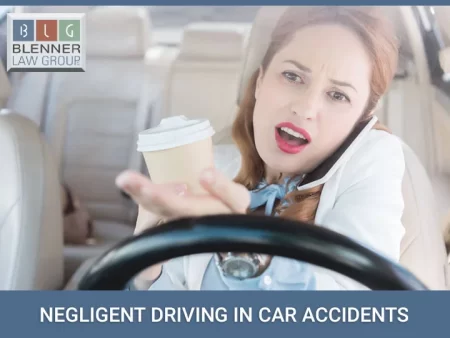 Once you’re in a car accident, you’ll need to prove fault to insurance companies and lawyers alike. There are a few things you’ll need to understand here.
Once you’re in a car accident, you’ll need to prove fault to insurance companies and lawyers alike. There are a few things you’ll need to understand here.
What is negligence?
As a driver, you’re responsible for using reasonable care to avoid injuring others. When you don’t, you’re liable for negligence. This is defined as any type of careless act that results in harm to another person. For instance, in a car accident, you’re negligent if you do something that you shouldn’t have done (e.g., speeding, running a red light) or fail to do something that you should have done (e.g., not turning on your headlights at night, failing to yield the right away, not stopping for a pedestrian).
What are your legal responsibilities as a driver?
According to the law, when you’re driving, you must use reasonable care so that you don’t harm anyone else who’s on the road with you. Here’s what this entails:
- Maintaining a reasonable speed while driving: This means taking into consideration everything going on around you (e.g., existing traffic, weather conditions, road conditions, visibility). Even when you’re driving at the speed limit, you can still be considered negligent if you don’t consider the surrounding conditions or if you’re driving while impaired.
- Be vigilant about watching what’s going on around you: You need to stay alert and monitor what’s on the road around you (e.g., vehicles, pedestrians, road hazards). Failure to see these things can constitute negligence.
- Maintaining control of your vehicle: When you lose control of your vehicle for any reason, you can be considered negligent, especially if you cause a car accident.
- Maintaining proper care of your vehicle: You must keep your vehicle in safe working order. Failure to do so can deem you negligent.
What happens if you’re harmed by someone’s negligence?
When there’s a car accident lawsuit that’s been brought about by another person’s negligence, you’ll need to establish all of the following:
- The other driver wasn’t careful – they “breached” (or violated) their duty of care: To determine this, the court will compare the driver’s conduct with the conduct they’d expect from a “reasonable person” in the same situation. If their behavior doesn’t match that of a “reasonable person,” they’re found to be in breach of the duty of reasonable care.
- You’ve been injured by the other driver’s conduct: This can be as simple as suffering from neck strain when another driver rear-ends your car or as severe as a traumatic brain injury from being thrown from your car when another driver T-boned you. In either case, you must provide evidence demonstrating that your injuries are a result of the motor vehicle accident. If the other driver can prove otherwise, you won’t be able to establish that their conduct resulted in your injuries.
- You’ve suffered losses at the hands of the other driver: When you prove that another driver’s negligence has caused you significant issues (e.g., injuries, pain, and suffering,
lost wages, decreased earning capacity, vehicle damage), you’ll be able to recover money for these things. However, if you’re unable to prove these things, you won’t be able to recover anything.
How can you get help with a car accident case?
Does it make sense to handle a car accident claim on your own when another driver’s negligence harms you? Typically, you must have a lawyer on your side so that you get the best result. If you find yourself in this situation, contact us at the Blenner Law Group Palm Harbor in Palm Harbor, FL.
Picture Credit: VistaCreate


